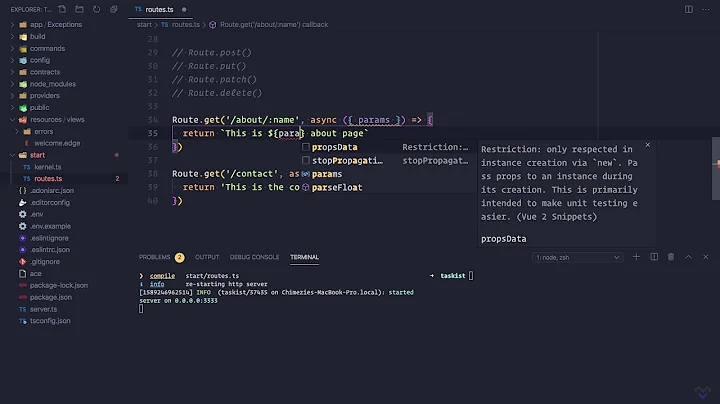7 - 8 dynamic routes
You can pass userName as a route parameter. In routes array
{ path: 'domain/:username', component: UserDetailsComponent }
in HTML:
<a [routerLink]="['/domain', usernameVar]">
When someone clicks on the link, it will route to UserDetailsComponent. In the component, the username can be read.
username: string;
constructor(private route: ActivatedRoute) {}
ngOnInit() {
this.route.params.subscribe((params: Params) => {
this.username = params.username; // same as :username in route
});
// using username call the BE api and fetch data
}
for more on route parameters, go to https://angular.io/guide/router#route-parameters
In case you want to route to the page based on authorization, use authGuards. https://angular.io/guide/router#canactivate-requiring-authentication
Related videos on Youtube
Mihaylov
Hobby programmer ( C# ) . Willing to become professional , but as with dark magic - it always comes with a cost - time in this case ( #BigFanOfOnceUponATime series) :) .
Updated on June 04, 2022Comments
-
Mihaylov almost 2 years
I have an Angular app which should be able to create new routes depending on users. Let's say user 'johndoe' registers, then the app should create a route:
domain/johndoe.Of course the
/johndoeroute should be provided with some info concerning the particular user ( like name, image etc.).I am using Google Cloud Hosting and Firestore as back-end solutions, and my progress so far was to inject the
Routerinto myAppComponentconstructor and then use theunshiftfunction on therouter.config. That kind of works, but I would have to store all the new routes ('users') into my database in a separate file, and then query the database every time someone navigates to a private rote ( e.g.domain/johndoe).Is there a beautiful and easier to maintain solution, which takes into account my back-end configuration?
-
Frank Adrian over 4 yearsI think you would be better of creating a dynamic route like domain/:username and have a component which fetches your data from firebase and renders it. Learn more here: angular.io/guide/router
-
Mihaylov over 4 yearsWould this allow a user to navigate to domain/johndoe ?
-
Frank Adrian over 4 yearsif your users are logged in, yes. you can show a link using routerLink with a dynamic parameter.
-
Mihaylov over 4 yearsIf you read my question again , you would notice that I would want to create routing , which would be global , to say so . So in case a user in America registers as 'Lincoln' , immedaitely after a annonumous user in Europe would be able to navigate to 'domain/lincoln' . I know that is not achieveable throug only the front-end . that is why I have stated what backend I am using
-
Frank Adrian over 4 yearsYou can protect your domain/lincoln route by an AuthGuard which relys on data from your backend. But are your users logged on? Its a bit hard for me to understand what you are trying to achive.
-
-
Mihaylov over 4 yearsI did not want to use routerLink , but to generate dynamically routes for the application , which would be accessible over it instances.
-
LALIT KANTA DIBYADARSHAN over 4 yearsHow are you planning to trigger the route, programmatically or by events?
-
Mihaylov over 4 yearsTo be honest your solution worked perfect ! Now I realized that using domain/:parameter could actually work perfect , then I just need to check in the database if such a user exists and fetch the data or navigate to a 404 page , using a route guard . Thanks






